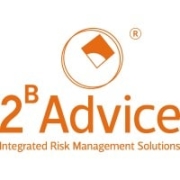IT Vendor Risk Management is essential for organizations to assess and mitigate potential risks associated with third-party vendors. It ensures compliance, security, and performance standards are maintained, protecting against potential threats from vendor relationships.
IT Vendor Risk Management involves processes and tools that help organizations evaluate third-party vendors to maintain robust risk management strategies. This category helps identify and monitor potential vulnerabilities and issues, ensuring that they do not adversely impact business operations. By implementing these practices, companies can safeguard their resources and maintain operational integrity. Maintaining clear vendor relationships based on transparency and trust can prevent both financial and reputational damage, which is crucial for sustained growth and stability in today's interconnected business environment.
What are critical features to look for?In healthcare, IT Vendor Risk Management solutions ensure vendors adhere to stringent data protection regulations. Financial sectors utilize these tools to manage extensive networks of vendors while maintaining compliance with industry requirements. Manufacturing industries leverage solutions to oversee supplier risks effectively, thereby avoiding production disruptions.
Implementing IT Vendor Risk Management helps organizations safeguard their operations from vendor-related risks. It establishes a foundation for secure and trustworthy vendor partnerships essential for organizational success in various industries.
| Product | Market Share (%) |
|---|---|
| OneTrust GRC | 8.3% |
| SecurityScorecard | 7.9% |
| Bitsight | 7.2% |
| Other | 76.6% |




















































Vendor risk management is important because failure to appropriately acknowledge the risk vendors can potentially bring to your organization is irresponsible. An ineffective vendor could expose your organization to cyberattacks and data breaches that could potentially harm your organization’s reputation and financial standing tremendously. There are processes taking place today to make vendor risk management a requirement in the very near future.
Vendor risk management software is a type of business enterprise software that helps companies safely and securely manage the risk of vendor relationships. Although some of these solutions can be analytical, using existing data to help decision-makers identify risks and make adjustments to avoid possible threat scenarios, there are other options. Some solutions will offer audit trails, monitoring, assessment, and reporting to ensure all active parties are using their access to the organization’s data correctly and that no inappropriate activity is taking place.
To assess IT Vendor Risk, you need to evaluate several factors. Start by reviewing the vendor's security policies, compliance with industry regulations, and past audit results. Check their incident response plans and business continuity measures. It's crucial to analyze the vendor's financial stability and any potential geopolitical risks. Using third-party risk management tools can help streamline this process, providing valuable insights into the vendor's risk profile.
What are the key components of an IT Vendor Risk Management program?An effective IT Vendor Risk Management program consists of several key components. These include vendor identification and risk assessment, establishing risk criteria, continuous monitoring, and regular audits. It's important to create a risk management framework that includes policies, standards, and procedures to address identified risks. Involving stakeholders, maintaining clear communication, and ensuring that vendors adhere to service-level agreements are also crucial aspects.
Why is continuous monitoring important in IT Vendor Risk Management?Continuous monitoring is essential in IT Vendor Risk Management because it allows you to keep track of changes in a vendor's risk profile over time. This proactive approach helps identify new threats or vulnerabilities quickly, enabling you to take timely corrective action. With constant monitoring, you can ensure that vendors comply with the required standards and regulations. It also provides an early warning system for potential issues that may affect your organization's operations.
How can technology streamline IT Vendor Risk Management?Technology can greatly streamline IT Vendor Risk Management by automating data collection and analysis. Risk management software can help you track vendor performance, compliance, and risk levels efficiently. Tools equipped with machine learning can predict potential risks, enhancing decision-making. Furthermore, technology facilitates documentation, reporting, and communication, ensuring that all stakeholders are informed and engaged in the risk management process.
What are the benefits of outsourcing IT Vendor Risk Management?Outsourcing IT Vendor Risk Management can provide several benefits. It allows access to specialized expertise and tools that may be costly to develop in-house. By relying on external experts, you can focus on core business functions while ensuring that vendor risk is effectively managed. Outsourcing can enhance the objectivity of your risk assessments and provide a broader perspective based on the outsourced firm's experience with various industries. Additionally, it can lead to cost savings and improved efficiency in managing vendor relations.